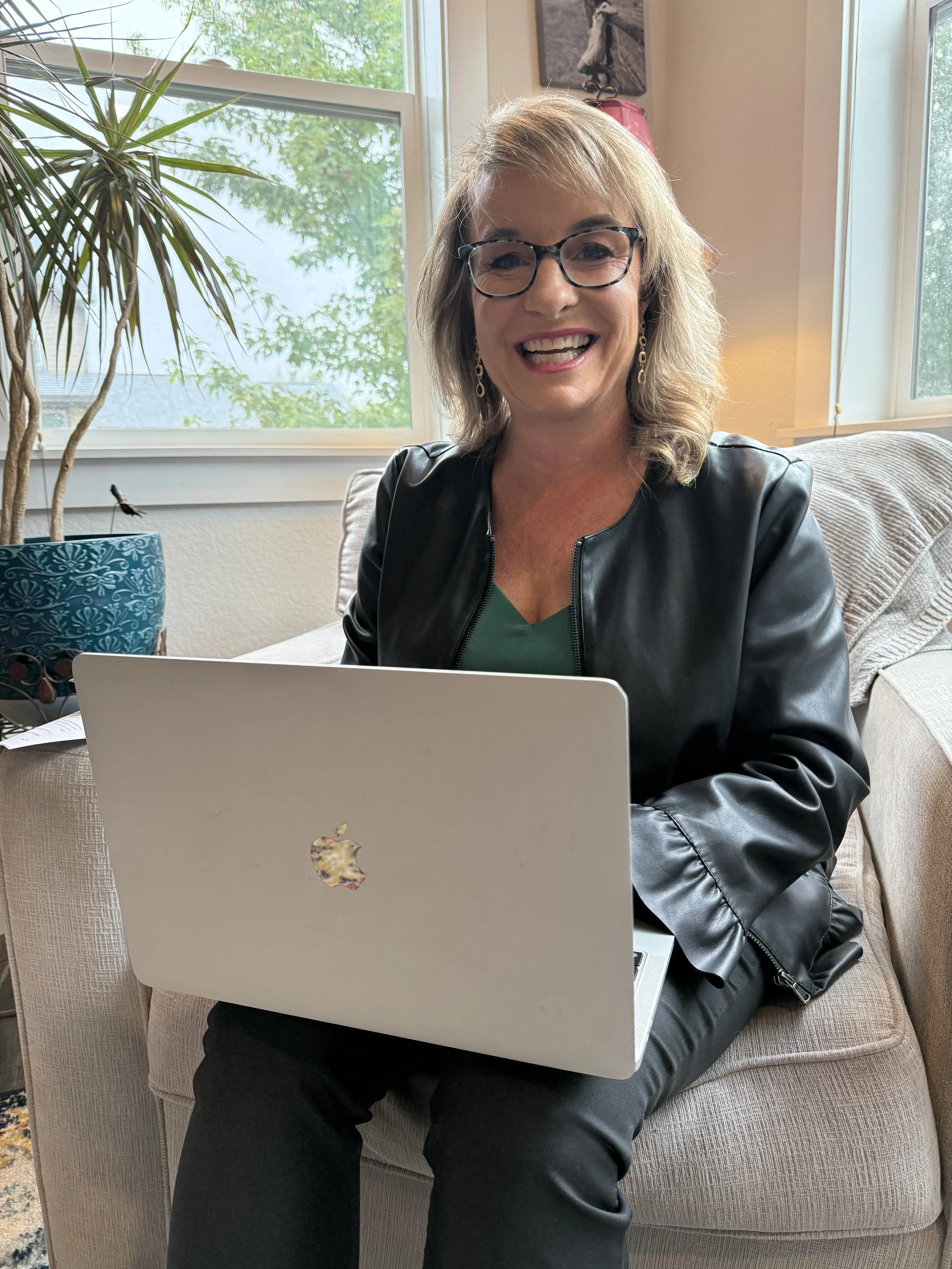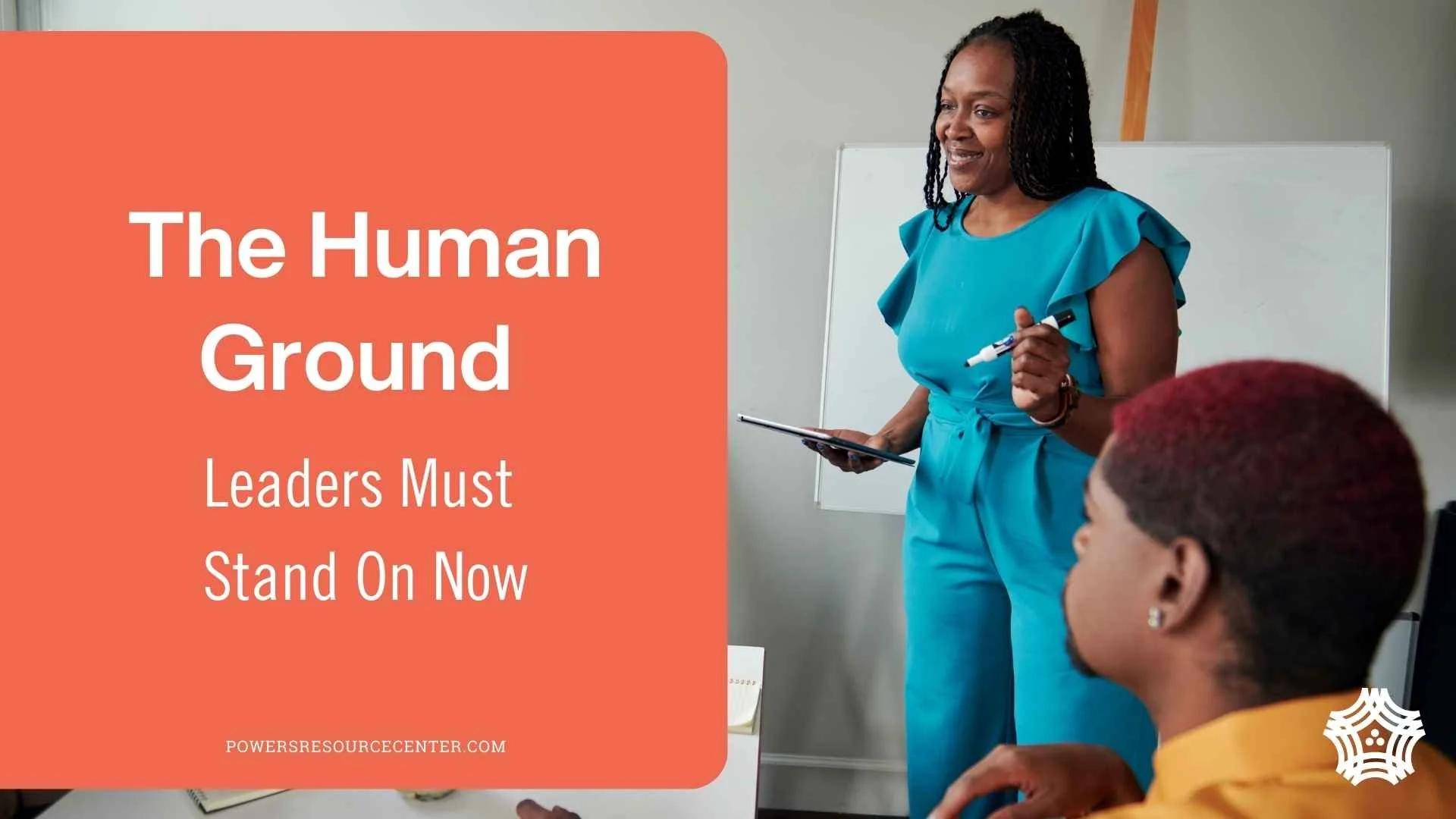Leaders Build Legacies: Why Becoming Trainers & Facilitators is the Path to Enduring Impact
When I reflect on my 30 years working beside executives, guiding transformation and culture change in organizations, one truth has emerged again and again: the leaders who leave the most enduring mark aren’t those with the best strategy, the flashiest vision, or the loudest presence. They are the leaders who grow and develop other leaders. They are the ones who coach, facilitate, teach, and invest in the people around them.
Legacy leadership isn’t about the size of your corner office—it’s about what remains once you step away. When your direct reports carry forward your values, your methods, your relational norms, your approach to learning, the organization becomes stronger, more resilient, more human.
In this blog post, I’ll explore how leaders can actively build their legacies by adopting the role of trainer/facilitator, how organizations that already have leadership bench strength lean into this as a growth pillar, and why cultivating this skill is more urgent than ever. I’ll also share a powerful case from one of PRC’s clients—a global insurance company—and tie in insights from Brené Brown’s Strong Ground to ground the vision in current leadership wisdom.
Finally, I’ll share a “legacy-builder framework” you can download and put into practice as a leader right away.
From “Command and Control” to “Teach and Co-Create”
For much of 20th-century corporate life, leadership was equated with power, status, and decision-making. The leader was expected to know, to fix, to lead from the front. Over time, as complexity, volatility, and distributed work increased, that model started to crack.
What fills the gap? The leader who can teach, guide, coach, and facilitate—not as an afterthought, but as a core part of how they lead. Leadership becomes less about giving answers and more about enabling others to find answers. In doing so, you cultivate capacity in your people, trust in your teams, and continuity in your culture.
When you function as a trainer/facilitator:
You help people internalize your methods, so your approach continues long after you are gone.
You create a culture of learning—not just training events, but daily micro-learning, reflection, feedback, and growth.
You draw out the creativity and wisdom that’s already in the room, instead of feeling like all the answers have to come from you.
You shift the spotlight away from the “hero leader” model and spread confidence, capability, and leadership across the team.
Bottom line: your greatest legacy isn’t the title you hold—it’s the confidence, culture, and capacity you leave behind for others to carry forward.
It’s tempting to assume that only struggling or flailing companies focus on culture, connection, or leadership development. But I’ve observed the opposite: companies that are already strong and steady are the ones that double down on these disciplines. They don’t wait for a crisis to care about connection; they proactively invest in it as a growth foundation.
These organizations understand that continued success—innovation, growth, retention, brand reputation—demands an anchored culture, evolving leadership, and a strong “village” mentality. Yes: it takes a village. You don’t build legacy alone. You build it in the relationships, practices, norms, and agreements that others carry forward.
As Brené Brown writes in Strong Ground, we need organizational systems that “ground down”—that “build new muscles” in creativity, belonging, paradox, and connection. She argues that in an environment of uncertainty, leaders must provide stability (ground) while navigating change and tension. That grounded stability comes through consistent relational practices, trust, and shared norms. brenebrown.com
Legacy leadership is grounded leadership. It’s not fragile, and it’s not just about quick wins or transactions. It sinks in and becomes part of the way your organization thinks, grows, and works together over time.
I’m thrilled to share a behind-the-scenes look at one of the most exciting leadership experiences we’re building right now at Powers Resource Center (PRC). It’s a project that brings together everything we believe in—connection, trust, and the kind of leadership that leaves a legacy.
We’ve partnered with one of the world’s top insurance and risk management firms to design a bold, future-focused development journey for their next generation of executives. These leaders are already strong. The company’s culture is admired across the industry—values-driven, collaborative, and deeply committed to doing what’s right. But they also know that strength has to be sustained.
With rapid growth through acquisitions, evolving hybrid work models, and shifting market dynamics, the organization wanted to ensure its future executives were ready to lead with both business savvy and emotional intelligence—to make decisions that drive growth and strengthen culture.
The Challenge: Sustaining Excellence Through Change
Even in strong companies, growth brings complexity. New people, new systems, new markets—all of it tests alignment and connection. This organization recognized that sustaining performance and culture at scale means developing leaders who can think strategically, communicate clearly, and unite people around a shared purpose.
The Partnership: Designing a Real-World Simulation for Real-World Leadership
Together, we created Catalyst: The Executive Acceleration Experience—an eight-month immersive leadership simulation that mirrors the real challenges of running a business.
Each participant steps into a realistic, data-rich environment where they lead a fictional business unit with full financials, a team roster, a client portfolio, and competitive market conditions. Across six evolving challenges, they’re asked to make—and defend—complex decisions:
How do you grow revenue while maintaining expense discipline?
How do you retain top talent when compensation pressures rise?
How do you rebuild trust after an acquisition?
How do you balance short-term wins with long-term culture?
Each decision triggers an if/then scenario with new data and shifting dynamics. It’s not about getting the “right” answer—it’s about how they think, communicate, and lead through ambiguity.
The Experience: Coaching, Feedback, and Reflection
Throughout the journey, executives receive coaching and feedback from senior leaders and professional coaches, helping them reflect on their approach and refine their decision-making. The experience stretches their financial, relational, and communication muscles—teaching them how to lead in ways that build confidence, connection, and trust.
It’s leadership development that feels alive, relevant, and real.
The Vision: Building a Legacy of Leadership
This work represents something bigger than a single program. It’s about building a sustainable leadership ecosystem—where coaching, culture, and accountability are embedded into everyday business decisions.
The results are still unfolding, but the early energy is unmistakable. These leaders are thinking more strategically, collaborating more deeply, and showing up with a renewed sense of purpose.
At PRC, we’re honored to help this organization build the executives of the future—leaders who combine clarity with compassion, results with relationships, and strength with heart.
When leaders and organizations really commit to building legacy through training and facilitation, here’s what starts to show up:
Teams that share a common language. Leaders and employees talk in the same frameworks, norms, and values. When someone leaves or a new person joins, the culture doesn’t skip a beat—it’s not tied to just one person.
Decision-making that feels inclusive but clear. Facilitated conversations create more ownership, better alignment, a wider range of ideas, and stronger buy-in.
Rituals that stick. Regular check-ins, debriefs, peer coaching, lessons-learned loops, cultural reflections—these aren’t “extras.” They become part of how the work gets done.
Leadership that’s shared, not hoarded. Many people lead learning, conversations, and training—not just one lone superstar. That’s what creates resilience and scalability.
The “soft stuff” is seen as strategic. Meetings, norms, feedback, connection, and relational health aren’t expendable—they’re critical to performance.
People feel seen and supported. In high-trust environments, people stay. They speak up. They bring their full selves to the table.
Legacy that lasts. Even as leaders move on or step into new roles, the practices, principles, and cultural norms continue.
This is the kind of leadership legacy I want every executive, manager, and organization I work with to experience—and to be proud of.
Several forces in our world make this shift urgent:
Complexity & Disruption
We live in a VUCA world—volatile, uncertain, complex, and ambiguous. Leaders who hoard answers will quickly become overwhelmed. The ones who facilitate collective knowledge sharing and learning will sustain momentum.Remote & Hybrid Norms
In the past, culture held together through physical proximity. Today, with more distance, we have to be intentional—designing connection, facilitation, and shared norms instead of assuming they’ll just happen.Generational & Value Shifts
People entering the workforce expect growth, coaching, psychological safety, meaningful work—not just paychecks.Technology & Automation
As AI and systems take over routine tasks, the uniquely human skills—learning, coaching, development, relational intelligence, facilitation—become core differentiators.Resilience vs. Heroism
In times of crisis, hero leaders perish. Legacy leaders build systems that endure. Strong Ground reminds us that we can’t lead by hubris or performance alone—we must cultivate groundedness, humility, paradox, courage, and connection. brenebrown.com
The time to move from “managing tasks” to “facilitating growth” is now.
WATCH: 3 Proven, Cost-effective Strategies for Building a Rock-solid Company Culture
If you’ve read this far, your heart is likely already tugging toward something deeper. You don’t have to wait until some “perfect moment” to begin. Legacy leadership is built in daily choices, micro-practices, and consistency over time.
At PRC, our mission is to walk alongside leaders who want to leave something meaningful behind. If you’re ready to deepen your legacy as a trainer, facilitator, guide, and culture-builder, I invite you to explore our suite of tools:
Train the Trainer Masterclass — Learn to craft and deliver high-impact workshops.
Everything DiSC® Certification — Facilitate powerful conversations around collaboration and behavioral insight.
The Five Behaviors® Certification — Equip teams to build trust and transform culture through the proven Five Behaviors model.
Done-for-You Employee Training Kits — Plug-and-play workshop content that reinforces your ongoing leadership investment.
If you’d like, I’d be honored to talk with you—not about a one-off workshop, but about your legacy. Schedule a strategy call with me, and we’ll explore how to build your training and facilitation engine, anchored in values, connection, and enduring culture.
In the end, the greatest gift you give your team is not a vision or directive—it’s the capacity to think, grow, and lead together after you're gone. That is legacy.
DOWNLOAD THE LEGACY FRAMEWORK below!👇
With deep purpose and an enduring legacy of my own,
Tara Powers
CEO, Powers Resource Center
LinkedIn:@tarapowers












